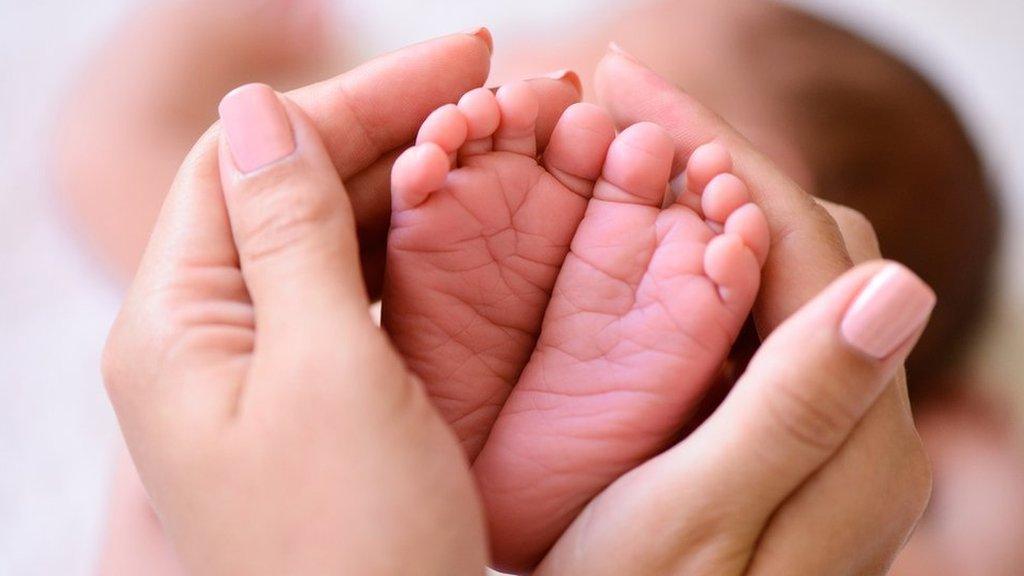Pregnancy fears 'ignored' by hospital before stillbirth - report
- Published
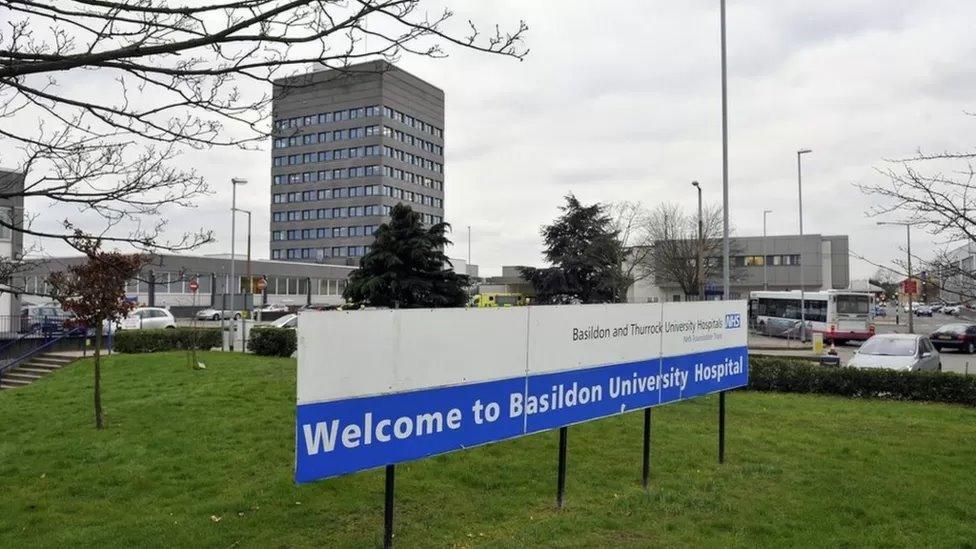
Mid and South Essex NHS Trust, which runs Southend, Basildon and Broomfield hospitals, has launched an investigation
A mother said concerns about her baby's movements in late pregnancy were ignored by staff before she suffered a stillbirth, papers have revealed.
The 25-year-old had reported reduced foetal movements but had been sent home from Basildon Hospital.
Board papers for the Mid and South Essex NHS Trust revealed an investigation was under way into the deaths of four babies in August.
A spokesperson said: "Any baby loss or still birth is a tragic event".
The papers revealed the pregnancy had been "uneventful" until week 33, when the mother reported blurred vision and headaches.
During an ante-natal appointment in week 37, test appeared normal and she was discharged home.
She returned the following day reporting no foetal movement - and an ultrasound confirmed her baby had died.
A report to the board said: "The mother and father did not feel listened to or that her ongoing management took into account the worsening symptoms that she was reporting.
"This meant that the opportunity for a holistic, obstetric assessment did not occur at the earliest opportunity."
'Tragic event'
The report added: "Due to competing clinical demands on staff, the mother's known multiple risk factors and new risk factor of reduced foetal movements were not fully appreciated.
"There was no escalation to, or discussion with, a senior obstetrician when the perception of reduced foetal movements continued in a high risk mother."
The trust - which covers Southend, Basildon and Broomfield hospitals - is investigating one death during a caesarean section operation and three stillbirths.
Two full-term stillbirths occurred at Broomfield where "some care concerns" were highlighted over one of the deaths.
The other incident was an unexpected, spontaneous onset of low-risk labour where "some learning was identified."
Alexander Field, a consultant obstetrician and gynaecologist with the trust, said: "Any baby loss or stillbirth is a tragic event, and we investigate these fully and take learnings from each incident to reduce risk.
"These incidents are rare, we support around 1,000 births a month across our hospitals and most are born safely with no complications.
"The trust is required to have systems and processes in place that support effective reporting and learning if things go wrong in the delivery of healthcare."
In the report, the trust concluded: "In view of these tragic losses, the three governance leads are currently compiling a spreadsheet of information in order to compare data and identify any themes and trends across the trust."
Last year, the Care Quality Commission (CQC) rated the trust and its three hospitals as "requires improvement".
The report said there was not enough staff at Basildon to keep babies safe.

Follow East of England news on Facebook, external, Instagram, external and Twitter, external. Got a story? Email eastofenglandnews@bbc.co.uk or WhatsApp 0800 169 1830
Related topics
- Published26 July 2023
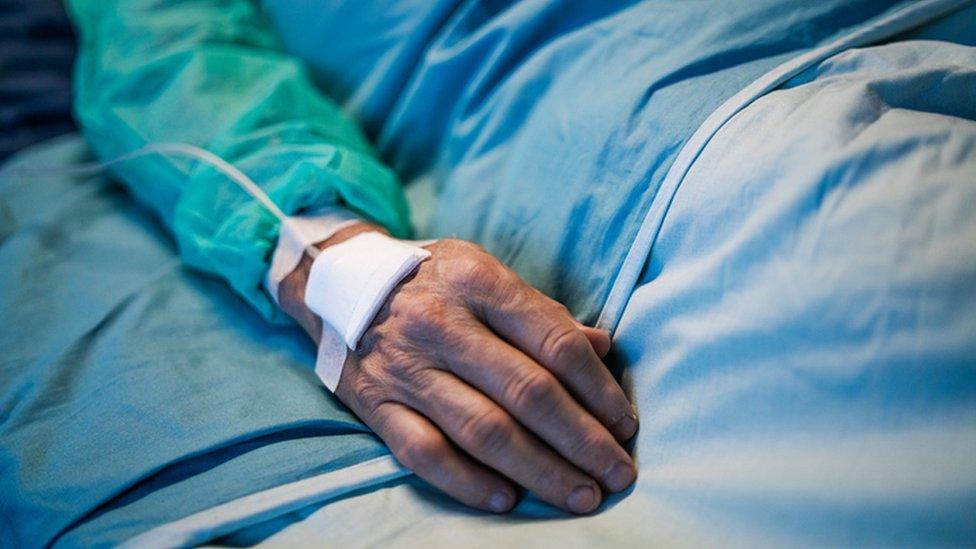
- Published27 January 2023
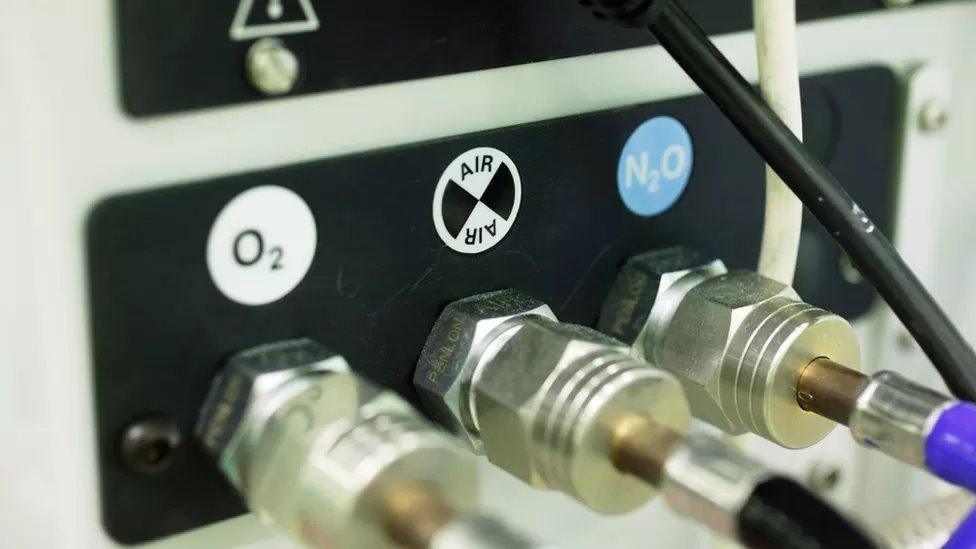
- Published16 January 2023
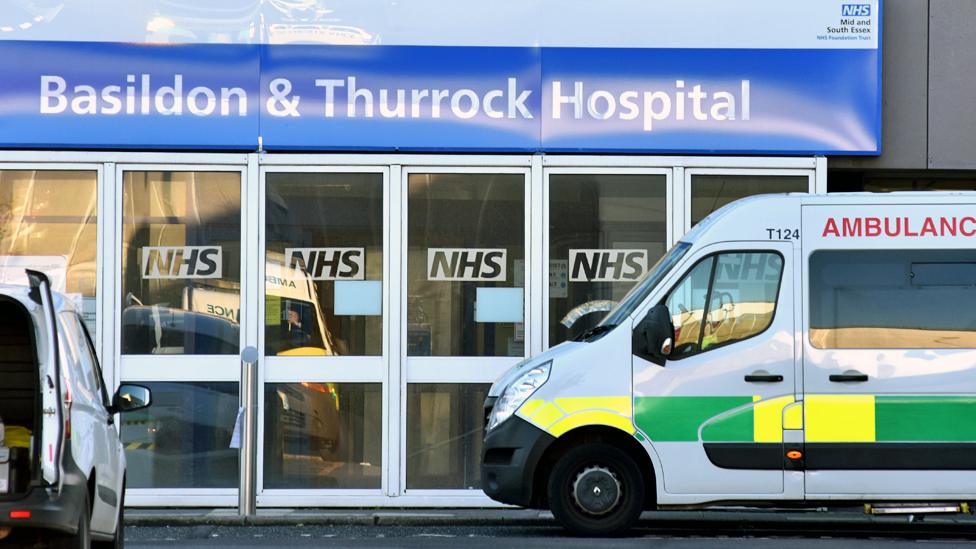
- Published23 December 2022
